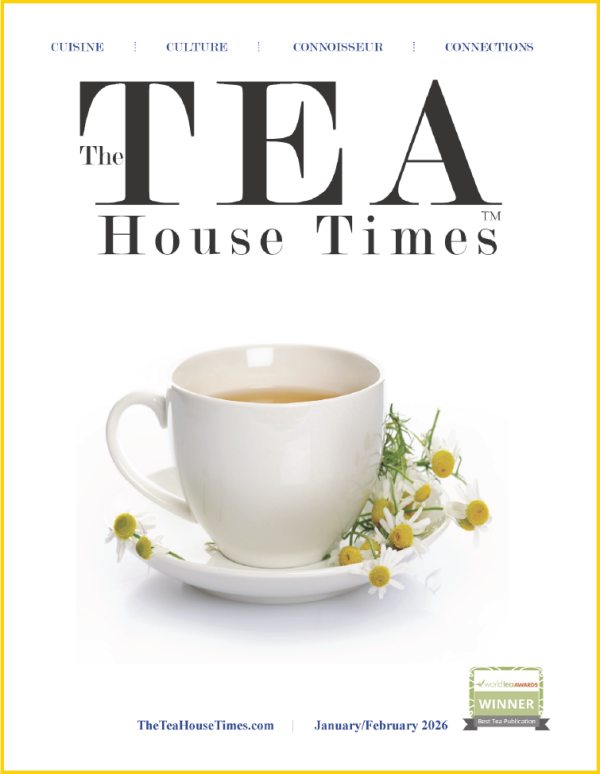

 by TEA ADMIN, Website Admin
by TEA ADMIN, Website Admin
Data1 reviewed by the Tea Advisory Panel reveals over 8 out of 10 Brits aren't hitting the sweet spot of five daily cuppas.
As we mark International Tea Day, almost 85% of us are missing the sweet spot when it comes to the ideal number of cups of tea to consume in a day, according to a new poll of over 1,000 UK adults reviewed by the Tea Advisory Panel (TAP) (www.teaadvisorypanel.com).
Scientific studies examining associations between tea and cardiovascular health suggest that the ideal daily amount of tea to drink for a healthy heart is in the range of 4-5 cups a day.
The new poll delves into Brits' tea drinking habits, along with their knowledge of the nation's favourite hot beverage, from how it's produced to how it confers health benefits. Worryingly though, on the eve of International Tea Day, the data reveals cause for concern in relation to the low volume of tea many Brits drink.
International Tea Day – on 21st May 2023 – was launched by the United Nations2 to celebrate the world's appreciation for tea, and it's a good time to remind people about the benefits of drinking tea.
GP and TAP member Dr Gill Jenkins says: "We're all used to thinking of our fruit and veg intake in terms of the recommended five-a-day thanks to successful marketing campaigns, but few people know that there's evidence that five-a-day of cuppas can also be a healthy choice."
Tea Advisory Panel member Dr Tim Bond goes on to expand on the importance of International Tea Day, explaining: "International Tea Day aims to encourage the sustainable production and consumption of tea and raise awareness of the importance of our beloved cuppa to people around the world."
"It's also a good time of the year to raise awareness of tea's multiple health and wellness benefits thanks to its anti-inflammatory, antioxidant, heart health and weight management properties."
As one example, authors of a large UK study published in The British Journal of Nutrition found a significant association between regular tea intake and a consistently lower risk of early death from various health causes.3
Dr Chris Etheridge and colleagues from TAP have also reported clear evidence of a connection between having four to five cups of black or green tea a day and a reduced risk of high blood pressure, along with emerging evidence that drinking tea protects blood vessels and lowers inflammation.4
TEA 5-A-DAY FAIL
According to the Tea Advisory Panel research, only 15% of Brits are achieving at least five cups of tea a day. Some may be teetering on the brink, however, with over a third (36%) reporting that they consume just three cups a day and 2% said they didn't drink any tea at all, much of the national are missing out on the health and wellness benefits of a cuppa.
MIND THE GAPS
While many respondents were aware of some of the health benefits of tea consumption, there were clearly a lot of knowledge gaps. For instance:
Explaining the health-supporting benefits of tea's naturally occurring plant bioactives known as 'polyphenols', Dr Tim Bond says: "A study from 2021 in Nutrients examined a range of different teas to see which ones made an impact on the cellular recycling process, known as autophagy."
"Six of the nine different teas studied – green tea, oolong tea, black tea, safflower tea, ginger tea, and hibiscus tea – as well as their polyphenols (health-promoting plant chemicals), including flavan-3-ols and epigallocatechin gallate (EGCG), were found to regulate this process. The authors suggested that this mechanism could be linked to many of tea's claimed health-promoting and therapeutic properties."
Public Health Nutritionist and TAP member Dr Emma Derbyshire also offered an important tip on the process of tea making, saying: "Ideally, when having our 4-5 daily cups, we should leave the tea bag to brew for at least three minutes to release the optimal amount of polyphenols. Unfortunately, in the TAP poll, fewer than a fifth (19%) brewed their tea for the correct time, and some (3%) said they simply dipped their tea bag in and took it out again, missing out on the benefits of the brew."
Last year, an international group of scientists5 set a daily recommendation of 400 to 600 milligrams a day for one particular health-giving polyphenol, called flavan-3-ols. The richest source by far of flavan-3-ols is tea - both black, our traditional cuppa and green tea - followed by berries and nuts, and pome fruits (including apples, pears, nashi, and quince)6. So, the good news is that it's easy (and delicious) to include them in our daily diet.
STEEPED IN SCIENCE
Research highlights the antioxidant, anti-inflammatory, anticancer, antimicrobial, anti-hyperglycaemic, and weight management properties of black and green tea polyphenols specifically. Data has also found evidence that green tea could potentially have a positive effect on chronic conditions like cardiovascular disease, cancer, Alzheimer's disease, Parkinson's disease, and diabetes.7
So, how does Brits' tea know-how measure up with the scientific evidence? Well, disappointingly, six in 10 (61%) said they wouldn't be able to explain why tea can support many health and wellbeing areas. When asked about the compounds we find in tea, 45% knew that it contained polyphenols, but only 20% said they understood that polyphenols can support health.
Dr Gill Jenkins says, "While it's clear that Brits love tea, with half (50%) of survey respondents reporting that it brings them comfort and over a quarter (27%) saying it boosts their mood, many are still missing out on the optimal health benefits because they're not drinking enough. With two fifths (40%) consuming two cups or less a day, we've got some way to go to get everyone up to the optimal five daily cuppas to enjoy the many health and wellness benefits of tea."
FOR MORE DETAILS SEE: www.teaadvisorypanel.com
The Tea Advisory Panel: The Tea Advisory Panel is supported by an unrestricted educational grant from the UK TEA & INFUSIONS ASSOCIATION, the trade association for the UK tea industry. The Panel has been created to provide media with impartial information regarding the health benefits of tea. Panel members include nutritionists; dieticians and doctors.
- - -
Click for more eNews + Blog Archives
© All content + images copyright of news/blog providers.
- - -
NOTE: The inclusion of news or advertising in The Tea House Times publication, on our website, or in our online eNews does not constitute endorsement.
- - -
POSTS SPONSORED/PUBLISHED BY TheTeaHouseTimes.com
Weekly eNews is circulated via email. Join list at top of home page.
The Tea House Times is published 6x per year in print & digitally.
INFO - SINGLE ISSUES | SUBSCRIBE | ADVERTISE | CONTACT
SOCIAL MEDIA - Follow us @teahousetimes
EDUCATION OPTIONS-
TeaCourse.com | TeaEtiquetteCertified.com | TeaCourseFastTrack.com
ONLINE TRADE SHOW - TeaTradeShow.com
SHARE THIS↓



